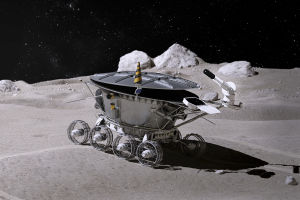Hello Lykkers! The world of agriculture has entered a new and exciting phase. Thanks to innovations in science and technology, mechanized farming is now transforming fields across the globe.
With enhanced efficiency, smarter use of resources, and environmentally conscious methods, this modern approach is making a real difference for producers and consumers alike. Here's a clear and friendly look at why mechanized agriculture is a game-changer in today’s world.
Enhanced Production Efficiency
Greater Reliability and Flexibility
Modern machinery offers consistent performance and adaptability, making it easier to manage large areas of farmland. It helps maintain precision in sowing and harvesting, leading to stronger and healthier crops.
Boosting Productivity with Advanced Machinery
Mechanized agriculture introduces equipment such as tillers, disc diggers, seeders, and straw collectors that significantly increase the speed and quality of fieldwork. These tools allow for quicker planting, smoother harvesting, and better crop maintenance, freeing workers from time-consuming manual tasks.
Environmental Protection and Resource Optimization
Minimizing Pollution
The use of advanced machinery helps reduce reliance on synthetic inputs. With fewer chemical additives needed, pollution from over-farming is minimized. This not only protects nearby ecosystems but also supports more sustainable land management practices.
Soil Conservation and Landscape Management
Modern tools make it possible to care for the soil more effectively. They help control erosion, retain nutrients, and manage the terrain without causing degradation. These practices support long-term soil fertility and contribute to more balanced ecosystems.
Improved Crop Quality
Advanced Crop Protection
With the help of precision equipment, farmers can monitor and protect crops more efficiently. Targeted interventions reduce loss from pests and external stress factors, supporting both higher output and better produce.
Precision in Crop Handling
Modern farming tools enhance every stage of the crop cycle—from planting to maintenance to harvesting. The result is better uniformity, stronger plant health, and more consistent yields. This improvement in quality also supports greater market value and broader appeal for agricultural products.
Economic Benefits for the Farming Community
Lower Operating Costs
Mechanized systems reduce the need for large labor forces, helping lower overall production expenses. They also make better use of essential resources like water and fertilizers, which contributes to financial savings over time.
Higher Market Value
Products cultivated with modern techniques tend to meet higher standards, which can boost their appeal in the market. By improving quality and consistency, these methods open the door to better returns for producers.
Streamlined Agricultural Processes
From seeding to post-harvest processing, machinery helps simplify complex tasks. This leads to smoother operations and increased daily output, strengthening the entire supply chain.
Energy Conservation and Efficient Resource Use
Reduced Land Pressure
Mechanized agriculture enables more intensive and targeted farming on smaller plots, decreasing the need to expand farmland. This protects natural landscapes while increasing productivity.
Smarter Use of Fuel and Power
Modern machines are designed to be more energy-efficient, helping cut down on excessive fuel use. Reduced emissions and cleaner operation contribute to a more sustainable agricultural footprint.
Efficient Transportation
The use of appropriate machinery also lowers the need for long-distance transportation. Shorter delivery routes, made possible by better planning and equipment, help reduce energy demands and environmental impact.
Conclusion: A Forward-Thinking Future for Agriculture
Mechanized agriculture brings a wide range of advantages—from improved efficiency and economic value to energy savings and environmental protection. This modern method is reshaping farming as a more intelligent, resource-conscious, and sustainable industry. By embracing these advancements, communities can enjoy higher-quality produce, reduced waste, and better livelihoods for farmers.
To all the curious Lykkers out there, the fields of the future are already growing—more efficient, greener, and ready for tomorrow!
The futuristic robots transforming agriculture
Video: Interesting Engineering


